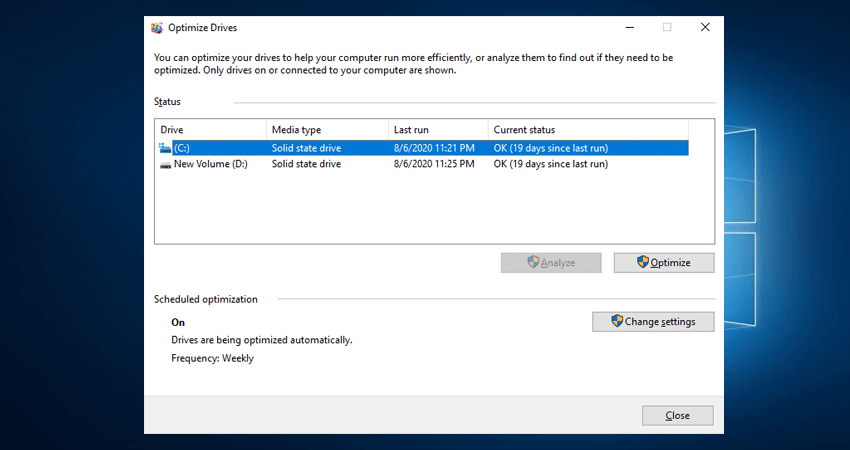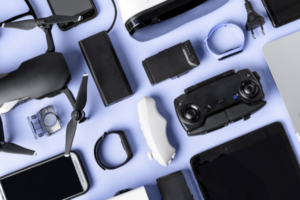A computer is a complex machine and for many people it has also proven quite hard to learn even the basics. And nowadays they have taken a very central part in our lifestyle, work and daily schedule. These machines are getting powerful by the day and hence we are making most use of them. But even when you have an all-powerful machine it will need care and maintenance from time to time.
The machine won’t be able to work efficiently as it did once, for long. You may be working with your computer for a long time and suddenly it just stopped working as it did once. Disk Defragmentation is one such tool that Windows carried with it but a large number of users always ignored it. But that didn’t decrease its importance. So in this article, I am going to share with you some reasons as to why regular disk defragmentation can improve the performance of your computer and why you should include it in your computer maintenance regime. Have a look:
What is Disk Defragmentation?
Disk Defragmentation is a technique by which all the fragments of data scattered on the storage disk are swept in one place. Let’s try to understand this in fragments. Suppose you have some data that you want to save on your computer’s hard drive. The source can be anything from a USB drive to cloud storage, doesn’t matter. So when you are instructing your computer to write data on your internal storage device, the computer starts doing it. The data is saved in tracks and sectors on the disk. At times this data, while writing, gets fragmented. It doesn’t mean that the data gets lost but it just got its bits spread across. Disk Defragmentation can bring these fragments together and can store the data in one place.
How can Disk Defragmentation improve performance?
Since you now know what Disk Defragmentation is, let’s move on to, how it can improve performance or is it even necessary? In short, the answer is yes. When the data is saved in fragments, the computer finds it difficult to read it.
And due to this the data reading speed gets slow which can make the computer look slow. You may be thinking that this program is launching quite slowly or this file is not loading, maybe the computer is not fast enough as it should be but that’s not true. It is working fast enough, it’s just the fragments which are making its task difficult. Experts recommend Disk Defragmentation at least once a week. How many times have you done it since you started using your computer?
How can you Defragment?
Windows is embedded with its own Disk Defragmenter Software and you can use it anytime you want.
- Click on the Start button in the bottom left corner of your screen and type “Defragment” and
- You will find the option of “Defragment and optimize drive” click on it and a new window will appear.
- This is the window of the Disk Defragmentation tool. Here you need to select which drive you want to defragment and after selecting the drive, click on the “Analyze” button given below.
- The tool will start Analyzing how much fragmentation is present on the disk. This may take some time, so please wait.
- Afterwards the tool will show you the percentage of fragmentation on the disk. You can proceed by clicking on the “Optimize” button and the tool will start working.
- This process will take longer, depending on the percentage of fragmentation, size of disk and speed of the computer.
- After 1 disk is fragmented you can proceed with the second one if you want to.
The one point here you should note is that the process of Disk Defragmentation doesn’t delete any type of data. So you will not have to worry about losing anything but that doesn’t mean that your data is full proof. The tool is working with it and is rearranging it, so if the power goes out or the computer shuts down in between then you will lose the data. So make sure that before you start the process, your system is connected with an uninterrupted power supply.
Recommendation
The default disk defragmentation tool is Windows can run into problems at times. A lot of time it can be something internal and troubleshooting it will need specialized knowledge of the system. So to avoid all the headache, we would suggest you to consider a third party tool that can efficiently do the job, won’t hamper your workflow and provides other features that would be helpful to you.
Here are some of the best defragmentation tools you can use:
Disk Speedup
Developed by Systweak Software, Disk Speedup is considered to be one of the disk defragmentation tools available on the market. It is lightweight and uses minimum resources to avoid slowing down your
computer. It can defragment, arrange data and can also be used as a safe tool. Users can stop the defragmentation process anytime in between without losing on any data. You can also schedule defrags and boot time defrags to avoid wasting your office time. You can even defrag multiple drives at once without losing on the performance.
Defraggler
One of the best free defrag tools on the market is Defraggler. It is developed by Piriform, also the developer of CCleaner. So it is trustworthy enough to handle your data. It also gives you the option to either defrag files one by one selectively or the whole disk in one go. You can also defrag flash drives, a feature which is not found in many other defrag tools.
So these were some of the recommended tools that I wanted to share with you. There are hundreds of such apps on the market and it could be very hard to find good ones that can actually do the job.
Hope it helps.
Thanks for reading!
Other article: Top Mobile Cyber Security Threats in 2020














